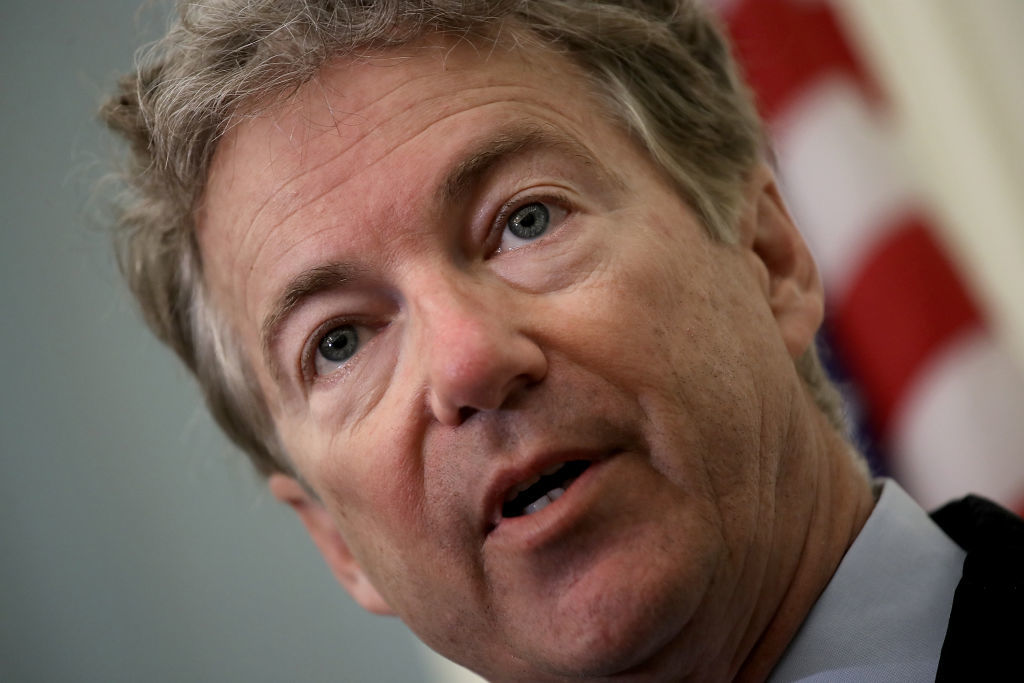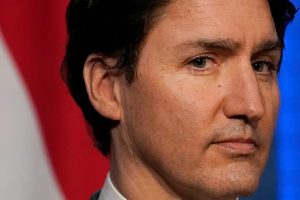Rand Paul’s whole aim in foreign policy is to keep the U.S. out of unnecessary, unwinnable conflicts in which there is everything to lose and nothing gain. So why are some of his supporters angry at him for staying out of just such a conflict with President Trump over Mike Pompeo’s nomination for secretary of state?
Pompeo is much more of an interventionist and national-security statist than Paul, who unsuccessfully opposed Pompeo’s earlier nomination to head the CIA. Paul had threatened to join Democrats to stop Pompeo’s State Department nomination from being reported out of committee. But at last he relented, and it’s not hard to see why.
Nothing would have been achieved by keeping the State Department in the hands of an acting secretary, and Paul would have lost all his political credit within the GOP if he had spent every last dime of it just to spite President Trump.
Far from being a “teachable moment,” blocking Pompeo would have served only to identify Paul in the minds of ordinary Republicans with the most partisan of Democrats. Paul would only have come out of the battle weaker, and thus the principles of foreign-policy restraint that depend on Paul for a voice in the Senate would also have been weaker.
What Paul did was to save his ammunition—his standing in the party—for a fight where the stakes really matter and there’s a chance of winning.
There are times when taking a lonely stand against one’s party is not only the right thing to do but the smart thing as well. Here it would have been dumb and not right but feckless.
It is is not as if Pompeo is needed to plant hawkish counsel in the president’s ear, after all, when John Bolton is already the national security adviser. To be the decisive vote against one’s own party on a matter like actually authorizing a foolish war is one thing: there the good to be achieved at the cost of so much political capital is worth the price. But to make an equally grand stand against something of virtually no consequence would be an absolute waste. Senator Paul acted intelligently both in causing friction for Pompeo in the first place and in judging that this was not the hill to die on.
The senator stands accused of betraying non-interventionist principle, but his accusers are ideologues who prefer to lose with symbolic purity than to win—or have even a chance of winning—by choosing their battles more carefully. In their utopianism and disregard for the real-world consequences of pursuing perfection, they are the mirror image of the neoconservatives they loathe, who apply that very same mentality to foreign affairs. Both camps believe that their good intentions excuse failure—or worse, that failure is really success. For the ideologue, the only metric that matters is conformity to an abstract program, the consequences in the real world be damned. Neoconservatives and utopian non-interventionists are so much alike because there is a deep strain of crackpot idealism in the American character, and our country is so rich and secure that our ideologues rarely suffer any personal loss as a result of their unworldliness. Too many of Paul’s critics are not interested in changing American foreign policy, only criticizing it.
This does not mean that Paul should not come in for criticism himself, only that critics ought to think practically as well as ideologically in venturing to assess him. As for the senator, there is a chance that he will hold the line against Gina Haspel’s nomination to replace Pompeo at CIA: the stakes there are higher (with Haspel’s nomination contributing to the acceptance of torture) and the political costs are lower. If Paul had to choose between blocking Pompeo or Haspel, he would be right to make an example of Haspel, even if political constraints did not apply.
U.S. foreign policy remains in dire need of reform, but reform will be political, not idealistically ideological—it will be messy and worldly and compromised, not clean, abstract, and virginal. We have more than enough utopians; now we need realists, including more like Senator Paul.


















